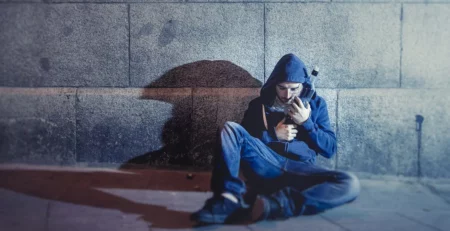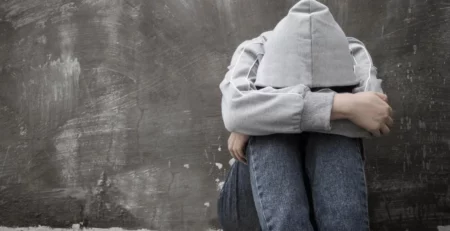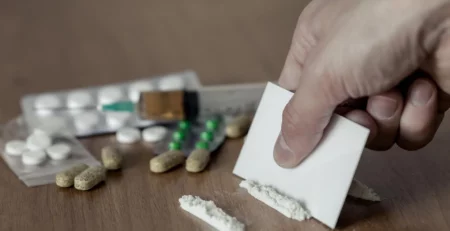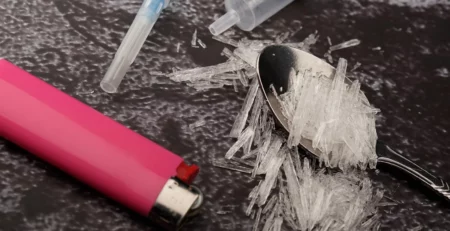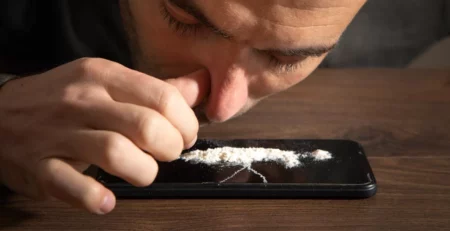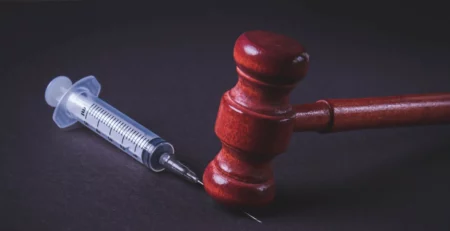Will Rehab Help My Court Case?
Getting Treatment Center Help to Lessen Legal Consequences
As someone who’s been actively engaged in substance abuse, you may have known that somewhere along the line you’d likely cross the criminal justice system as a result. Unfortunately, one of the major ripple effects of substance abuse is often finding yourself on the wrong side of the law.
The particulars aren’t necessarily important: the point is you got here and now you’re facing a court date. Generally, it’s for something like drugged driving, a DUI, or a simple possession charge – nothing that will send you to prison, but enough cause for alarm – and leaving you scrambling for anything to put the fire out.
One of the most frequently asked questions we get from our clients at Icarus Behavioral Health in Nevada is, “Will rehab help my court case?” In many cases, the answer is yes.
Keep reading to understand more about what support we can provide for your situation and how the programs at Icarus in Nevada can be of service!
Addiction Treatment and Your Court Date: What You Need to Know

In most cases, we find that there are two common scenarios involving addiction treatment and the legal system. The first is when the defendant receives orders from the judge to attend a rehab facility for treatment. The legal proceedings may outline the fact that you need inpatient court-ordered rehab – or you may get a recommendation for outpatient services. Another option in Nevada is drug court – which is usually the most intensive form of treatment regarding court proceedings.
Drug courts are usually given to those who would likely serve a prison sentence in any other situation. However, thanks to certain state legislation, someone who commits a felony as a result of their addiction is eligible to receive treatment at a rehab center along with a demanding regimen of probation instead of prison time. Again, in some cases – this covers outpatient rehabilitation services – depending on how severe your case is.
Over the last ten years, more states have been adopting programs that include treatment instead of jail or prison time. Realizing that drug rehab services are more effective for someone’s rehabilitation, a stay at a rehab facility is much more appropriate for long-term results.
Get Rehab Support for Legal Proceedings – Call Now!
Voluntary Treatment
The second type of substance abuse treatment that goes along with legal proceedings is voluntary treatment. Instead of being forced by the criminal justice system, many people voluntarily commit to a drug addiction program – in the hopes of getting a lesser sentence or no jail time at all.
Is this as effective as court-ordered rehab in Nevada for lowering your sentence? Well, if it’s voluntary – there are never any guarantees. The judge has no obligation to lower your sentence because you opted for treatment for drug or alcohol addiction, but it can often be a heavily weighted factor in determining your final verdict.
Taking Initiative and Proactively Seeking Drug and Alcohol Rehab
Many judges will show consideration for those who voluntarily commit to treatment. In some instances, they may have been heading towards court-ordered rehab anyway. But in cases where rehab was never on the table for the judge as a potential outcome – the tides can turn in your favor by opting to attend some form of recovery program.
It’s always important to keep in mind that whether you attend voluntarily or the judge orders you – one chance is usually all you get. If you attend treatment and end up in front of the judge a second time for substance abuse-related charges – they’re not nearly as likely, or even lawfully allowed, to offer you treatment again – or take you seriously if you go the voluntary route.
Divorce, Rehab, and Legal Challenges

Most people who struggle with substance abuse issues have either experienced or are headed directly toward a critical point in one or many of their relationships. During a struggle with addiction, it’s usually the husband or wife of the addicted that bears the most significant impact. Drugs and alcohol destroy the family dynamic and are major culprits for domestic violence, emotional abuse, and trauma.
In many cases, the spouse puts up with all they can handle until the relationship hits a tipping point. Many addiction-effected marriages and relationships end in divorce or separation. In most cases, the sober individual has more control over the outcome of the divorce and subsequent legal proceedings.
The chances are high that things end up favoring them when court proceedings are over – which could potentially be costly to the one struggling with addiction.
Confidential Substance Use Assessment – Call Now!
Court Cases Involving Children and Custody Hearings
It’s also highly likely that if you’re actively engaged in substance abuse and have children – you could lose many of your rights – and even time spent with your kids. This is why you find that most judges take addiction seriously. It’s an unfortunate downfall that plays a major role in the lives of young children – often causing long-term emotional trauma because of certain things they’ve seen, heard, and experienced.
In the case of these types of legal proceedings, the odds of something positive coming out of voluntary drug or alcohol treatment programs are much higher than with criminal court. Why? Because – the most favorable outcome in the eyes of the court is to have both parents in the lives of the child – and the parents as responsible and present as possible.
Drug Abuse and Seeking Addiction Treatment as a Parent
The desire of a parent to be in the lives of their children is enough for many of them to voluntarily commit to treatment. In the eyes of the court, this is showing considerable effort to do the right thing.
In turn, the court generally rewards the parent with supervised visitations initially, leading to more lenient visitation if they continue to make strides in recovery. That said – in the case of family court, attending some form of treatment program can help and produce favorable results.
Can I Be Forced to Enter Treatment?

Many people have asked questions regarding whether they can be forced to enter treatment. The answer is yes – but it depends on the circumstances. Normally, the only time you would be forced to enter a treatment center is if it’s court-ordered and part of a diversion plan. As stated above, many states are offering this as part of a program that keeps those with addiction issues out of jail – offering them an opportunity at recovery instead.
However, these programs could still be considered somewhat voluntary. In most states, you must request the option to participate in a diversion program. In past years, courts would levy individuals with alcohol and drug treatment as part of punishment – as a negative result of their actions. This is often not the case any longer, as treatment can offer solutions to mental health problems alongside the tools to sustain recovery and should not be thought of as punitive.
Reserving Inpatient Treatment to Maximize its Impact
More and more states are stepping away from this – for one primary reason. Most judges feel that if someone wants to enter treatment, it must be done under their own free will.
With the current state of the fentanyl epidemic and the need for open beds at rehabs, using treatment as punishment would be a waste of a spot at a facility for someone who doesn’t truly want to recover – when someone out there who truly needs and wants the help, could use it instead.
Be Sincere In Your Decisions Regarding Treatment Options
This is why it’s important that if you’re going to court for any type of drug or alcohol-related offenses and want to enter treatment, you should be sincere about your efforts at getting sober. If you’re having a difficult time deciding whether you should enter treatment, you should carefully consider your actions and weigh your approach moving forward.
If you’re in legal trouble over drugs or alcohol – the chances are high that you probably need some form of treatment – you just might not realize it yet. One clear indicator can be the failure of drug tests required by the court during the pre-trial phase, or in other instances when urine or other drug testing is required by the legal system.
In the next section, we highlight things you should look for that could alert you to the fact that entering rehab might be the best course of action.
Up to 100% of Treatment Costs Covered by Insurance – Call Now!
Will Rehab Help My Court Case? 15 Important Considerations
Many people who need assistance in recovery have no idea that they’ve crossed the line from casual users to someone with a diagnosable substance use disorder. While we also provide an assessment for those who call, some commonplace questions can help you determine whether further treatment is warranted.
How Do I Know If I Need Treatment?
If you’re wrestling with whether you should enter rehab, the following list can help you make the right decision:
- You’re withdrawn from family and friends and barely communicate with anyone who doesn’t share in your habits.
- If you’re spending a considerable amount of money on your favorite alcohol or drug of choice and it’s impacting your finances.
- You’re beginning to neglect yourself and your responsibilities. You may have poor hygiene and miss days at work.
- If you’ve had an accident at work or elsewhere because you were high or had a buzz.
- If you’ve gotten into legal trouble and it had something to do with your drug or alcohol use.
- You find yourself only hanging out with other people who get high or drink regularly.
- You drink or use your drug of choice daily and feel like you need it to get your day started.
- If you’ve gone from social/casual user to now using alone or during the week and on work days.
- If you use drugs or alcohol when you feel depressed, angry, anxious, upset, or to cover up any other negative feeling.
- If you regret using drugs or alcohol and still do it anyway.
- If you’ve ever told yourself or someone else that you were going to quit drinking or doing drugs and failed to follow through – especially on more than one occasion.
- People who care about you have approached you and asked you about your drug and alcohol use out of concern.
- If you’ve repeatedly had to tell yourself and other people that you’re not addicted and you can stop whenever you want.
- You’re attempting to hide your drug use from your friends, your spouse, or members of your family.
- If you have withdrawal symptoms when you don’t have alcohol or your drug of choice.
Get Support from Icarus and Put Your Court Case in the Past

If you’ve been facing a pending course case and wrestling with whether you should attend treatment – or are just concerned over your sobriety in general – Icarus Behavioral Health in Nevada can help. There’s no shame in admitting you need help. The only shame is knowing you need help and not reaching out to get it.
We have people standing by around the clock, waiting to walk you through the process of entering treatment. There’s no reason to be nervous or reluctant – in the end, it will be the best decision you’ve ever made for yourself.
For more information on our programs and how we can help you achieve your recovery goals, contact our admissions team today!


